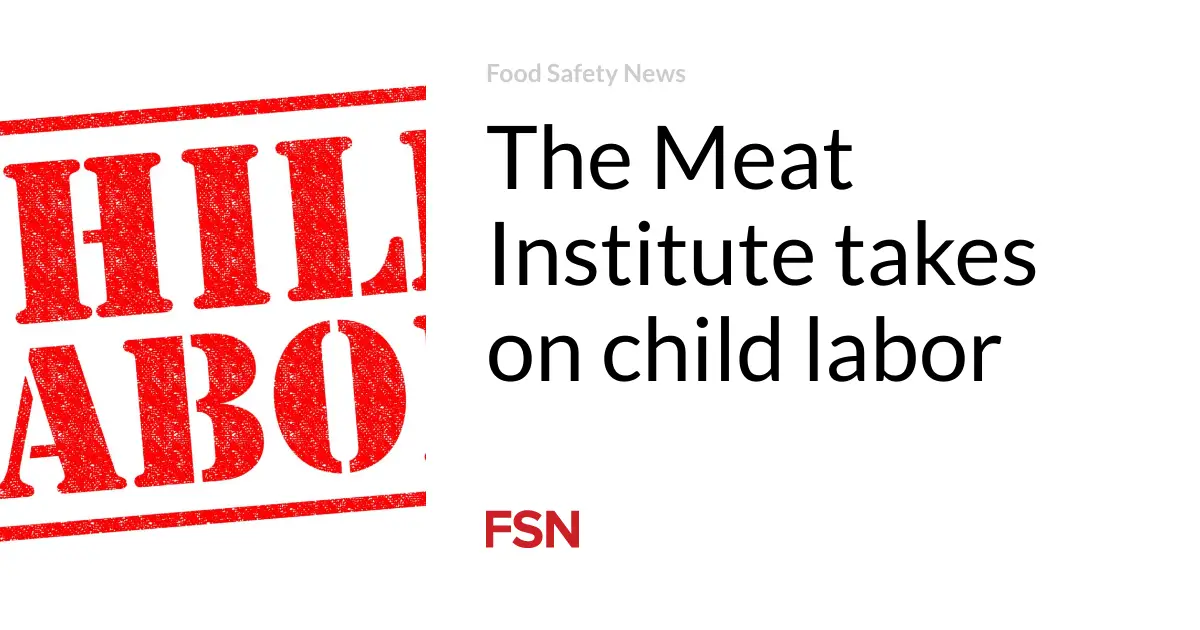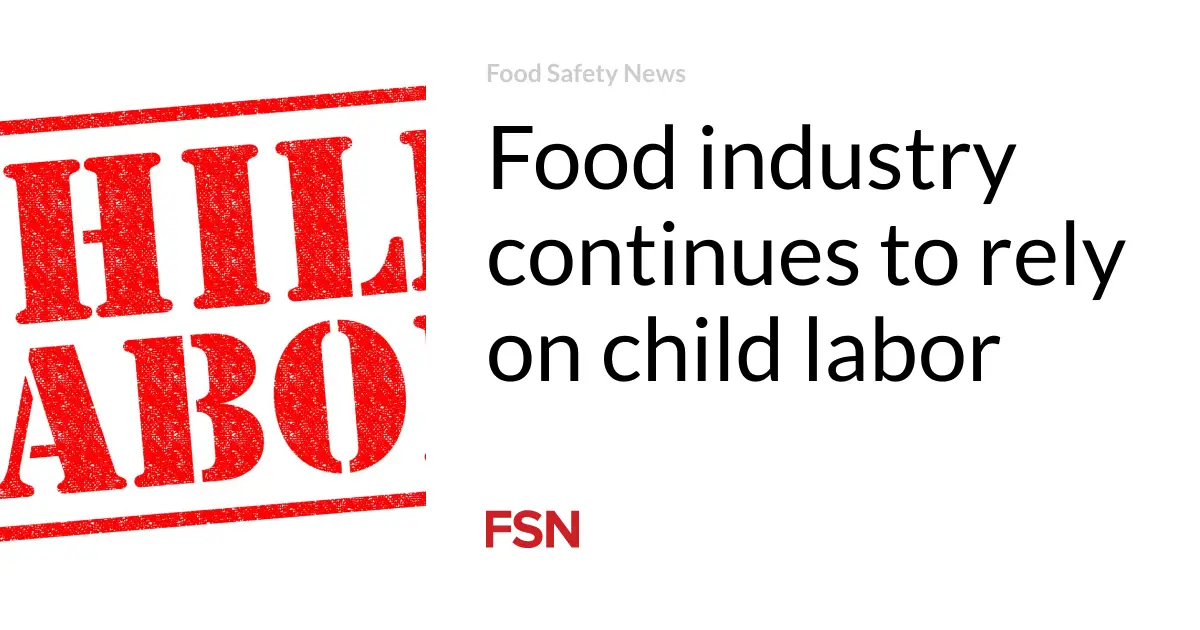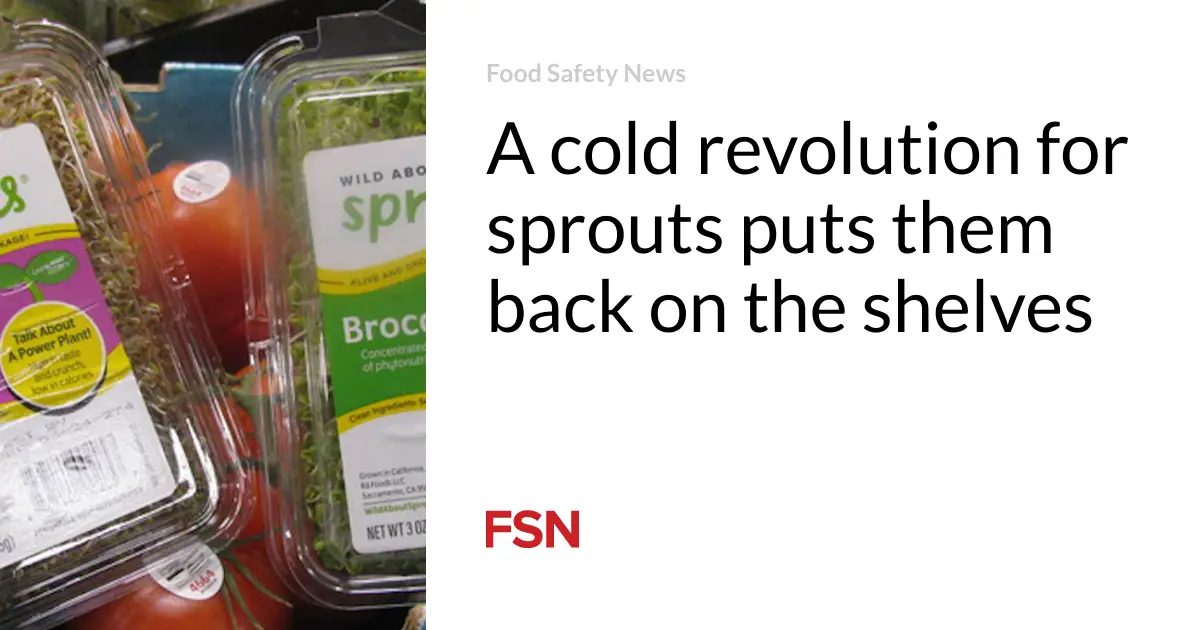
The Washington D.C.-based Meat Institute, formerly the “North American Meat Institute,” has decided to do something about child labor.
“The members of the Meat Institute are universally aligned that meat and poultry production facilities are no place for children,” said Julie Anna Potts, president and CEO of the Meat Institute.
Potts said the Meat Institute has shared its newly released “best practices” with both the Department of Labor and the Department of Agriculture,”
“We know existing government programs are not enough to solve this problem, and we stand ready to work with the federal government to develop effective programs and, where appropriate, penalties to ensure underage workers are not a part of our workforce,” she said.
Hundreds of thousands of migrants are entering the country illegally each month, including more unaccompanied minors than ever before, according to the Meat Institute.
Child labor is hired both knowingly and unknowingly in the United States, and many meat and poultry businesses are involved. The meat industry jobs are often food safety jobs of cleaning dangerous equipment.
The Meat Institute’s best practices were developed to help prevent child labor given the record influx of undocumented minors occurring in tandem with the increasing prevalence and sophistication of identity theft and fraud.
The Meat Institute says it has worked to educate member companies to improve age and identity verification. Programming has included outside experts and counsel to educate member companies on false identification, trafficking, lessons learned from companies charged with violating child labor laws, new programs and technology to detect identity fraud, and more.
At the heart of the Meat Institute’s campaign against child labor is a 7-page “best practices” document on “Workforce Age Verification.”
“Children have no place in meat or poultry packing or processing facilities,” says the document’s statement of principles. “The Meat Institute’s member companies categorically prohibit hiring anyone under 18 to work in their production facilities. The prohibition on hiring child labor extends to the use of subcontractors.”
According to the Meat Institute, a corporate commitment to prevent illegal child labor is a critical first step. This should include a supplier code of conduct for third-party contractors.
Companies should participate in voluntary government programs like the E-verify program for new hires.
Managers and supervisors should be encouraged to report any suspected child labor immediately.
Meanwhile, in one of the largest wage violation settlements ever reached for U.S. poultry workers, a federal court in Los Angeles has entered a consent judgment that orders Fu Qian Chen Lu, Bruce Shu Hua Lok, and others as owners and operators of a network of California poultry processors and distributors to pay $4.8 million in back wages and damages to 476 workers and $221,919 in penalties after a U.S. Department of Labor investigation.
The settlement also requires the employers to give up $1 million in profits earned from the sale of goods tainted by oppressive child labor and pay assessed penalties of $171,919 for their child labor violations. The judgment follows the grant of a temporary restraining order that barred the shipment of hot goods into commerce and required the employer to disgorge all profits related to any such shipment.
Lu and his associated companies supply poultry products to distributors who sell chicken products to, among others, Diamond Green Diesel, Diamond Pet Foods, Foster Farms, Mars Pet Care, Perfection Pet Foods, and Superior Food, as well as several Nevada hotels and casinos including Caesar’s Palace, The Mirage Hotel and Casino and The Orleans Hotel in Las Vegas; and the Casablanca Casino and Virgin River Hotel and Casino in Mesquite.
(To sign up for a free subscription to Food Safety News, click here)







